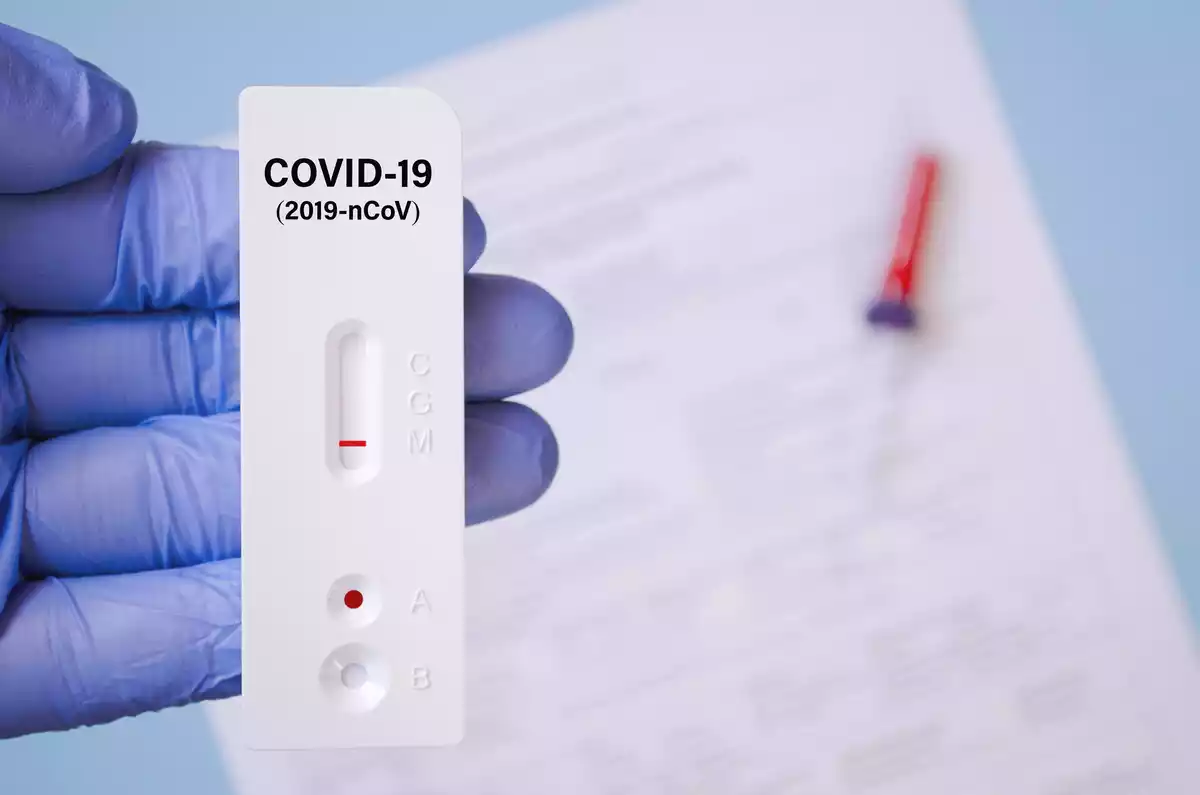Vaccination with AstraZeneca returned last week after a few days of suspension. Several countries reported cases of thrombosis in citizens vaccinated with the Cambridge-based global pharmaceutical company's dose. Now, recent research has solved the mystery.
A team of German hematologists, led by Andreas Greinacher of the University of Greifswald, has found an explanation for these strange cases of thrombi and coagulation disorder with low platelets recorded in about 30 people vaccinated with the AstraZeneca dose.
These experts have called it 'Vaccine-Induced Prothrombotic Immune Thrombocytopenia (VIPIT)'. The unusual combination of symptoms, widespread blood clots and a low platelet count, sometimes with bleeding, is very similar to a rare side effect of heparin, called Heparin-Induced Thrombocytopenia (HIT).
Andreas Greinacher is blunt about VIPIT. “We know what to do: how to diagnose it, and how to treat it,” he says for Science.
This syndrome occurs in one subject in a million and is induced by activation of platelets, which end up forming thrombi.
It is essential to identify it as soon as possible in order to treat it with intravenous immunoglobulins.
Symptoms appear 4 to 15 days after vaccination. Headache, blurred vision, difficulty in speaking, difficulty in breathing, or chest pain are some of them.
In addition, it should be noted that there are no family or personal predisposing factors.
The origin of the research
It all began from a specific case, a 49-year-old Austrian nurse seen by hematologist Sabine Eichinger was admitted to a hospital in Vienna on February 27.
The patient had nausea, an upset stomach, low platelets and thrombosis in the veins of the abdomen and arteries. Sadly, she passed away the next day.
This rare combination of thrombocytopenia and clots surprised Dr. Eichinger, who got in touch with Andreas Greinacher because she knew that it could also occur in that rare side effect of heparin, called HIT, and the German hematologist is an expert in this matter.
Heparin, an anticoagulant, binds to a protein called platelet factor 4 (PF4), forming a complex. In some people, without knowing why, they produce antibodies against this complex, resulting in uncontrolled clotting.
What alerted Dr. Eichinger was that her patient had not been given heparin, but had received the AstraZeneca vaccine five days before the symptoms began. "I thought maybe it was some kind of immune reaction," Eichinger tells Science.
Andreas Greinacher investigated and asked the Paul Ehrlich Institute, which oversees vaccine safety in Germany, whether they had seen any cases like the Austrian patient's. The answer was also yes, and Greinacher received blood samples from eight other patients. All of them had low platelets and unusual clotting.
Important findings
After that, the aim was clear, to study these nine cases to see if they could have suffered a prothrombotic disorder caused by platelet-activating antibodies directed against platelet factor 4 (PF4) as occurs with heparin.
In all cases, there was a remarkable coincidence. All nine patients had developed thrombosis between day 4 and 16 after receiving the vaccine. Tragically, four of them died.
Although none of the nine patients had received heparin before, in four of them they found antibodies against the PF4 protein, which is the hallmark of HIT. Thus, the researchers concluded that the "AZD1222 vaccine is associated with the development of a prothrombotic disorder that clinically resembles heparin-induced thrombocytopenia, but shows a different serological profile."
Thanks to these findings, it can be said that the treatment of VIPIT may be similar to that of HIT, or at least that is what Greinacher proposes.
This expert points out that it is crucial to alert doctors to this possible complication. If it is detected in time, it can be treated with immunoglobulins that help to slow down platelet activation and with non-heparin anticoagulants to facilitate the dissolution of clots.
Andreas Greinacher tells the journal Science that one doctor decided to apply his advice and the patient recovered quickly. He, therefore, believes that it is necessary to alert doctors about the whole issue, as does his colleague Nigel Key, a hematologist at the University of North Carolina. However, not everyone sees it the same way. What is not yet clear is how the vaccine can trigger the syndrome.
Robert Brodsky, a distinguished hematologist at Johns Hopkins University in New York, is not so convinced that VIPIT can explain all the cases that have occurred with the AstraZeneca vaccine. However, he does agree that PF4 antibodies and the clotting observed in patients resemble HIT but warns that the link has not yet been proven. “I’m convinced that these patients have platelet factor 4 antibodies, at least four of them. But I’m not convinced that those… antibodies are explaining the thrombocytopenia or the clotting,” he tells Science.
What all these experts do agree on is that "these cases raise concern that this vaccine is potentially life-threatening in a small subset of patients.” For this reason, it is now necessary to find out who is in it.
Nevertheless, the hypothesis of the German researchers is sound and several European countries, such as Germany, the Netherlands or the UK, have already incorporated VIPIT into their recommendations on COVID-19-related medical practice.
In Australia, the Immunization Technical Advisory Group already recommends not to administer any COVID-19 vaccine to people with a history of HIT.
[This is a translation of the original article "Resuelto el misterio de los trombos y la vacuna AstraZeneca" published in espanadiario.net]

